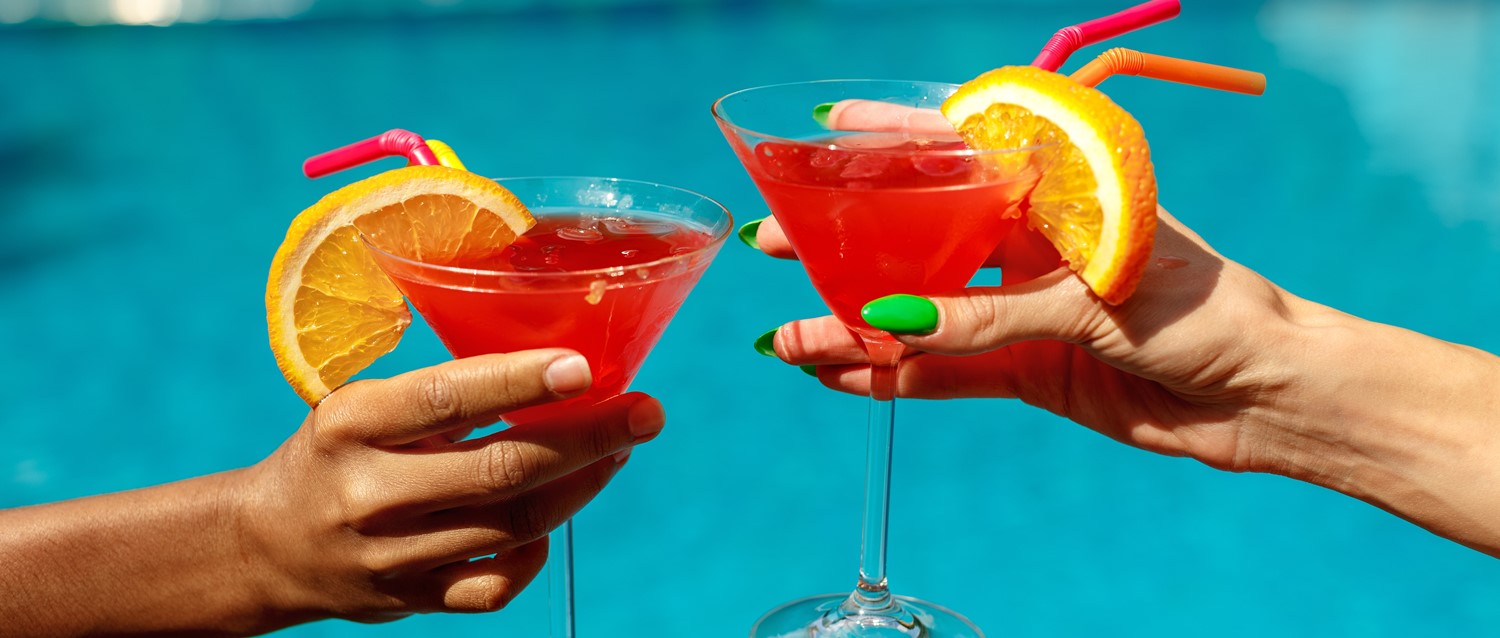
What are the benefits of giving up alcohol?
Peer reviewed by Dr Krishna Vakharia, MRCGPLast updated by Lydia SmithLast updated 4 Oct 2023
Meets Patient’s editorial guidelines
- DownloadDownload
- Share
- Language
- Discussion
Many of us are guilty of having too much alcohol, particularly on a special occasion or at the end of a long week. However, abstinence is becoming more mainstream - and people turning to non-alcoholic alternatives says it does wonders for their mental and physical health.
In this article:
Video picks for Alcohol advice
Robin*, 19, says she started drinking alcohol in her early teens through friends at school.
"I never really thought about the consequences until I turned 18 and started going to clubs every weekend," she says. With the support of her boyfriend, she decided to stop drinking alcohol completely to see if it improved her health and wellbeing.
"Since then, my mental health has improved significantly," Robin says. "I'm saving money and I'll never have to battle another hangover again. I found myself becoming slightly more motivated, especially at work, and I don't tire as easily."
What happens to your body when you stop drinking alcohol?
Reduced blood pressure
Dr Fiona Sim, chief medical advisor at Drinkaware. "Once you have stopped drinking, some of the health effects will soon be noticeable. So, for example, your raised blood pressure will come down and may return to normal. But if you take regular medication, do speak with your doctor before thinking of cutting down your medication."
Better sleep
Although many people use alcohol to help them get to sleep more quickly, drinking actually disrupts your sleep cycle later in the night. You spend less time in a deep sleep and more time in the less restful rapid eye movement (REM) stage of sleep, so you'll feel tired the next day.
Sim explains that your sleep pattern and quality will improve if you cut down on alcohol, so you'll feel more refreshed when you get up in the morning.
"You'll sleep better without alcohol, both because it affects sleep quality and because you are less likely to need to get up to pee during the night," she says.
Skin benefits
Drinking less can also help make you look healthier too.
"Firstly, a lot of people don't realise that alcohol causes dehydration and one place that really shows is your skin," Dr Sim says. "So dry skin, often with a flushed complexion, is not a look most of us would choose."
Weight loss
"Secondly, the calories in alcohol often go unrecognised and contribute to overweight and obesity," she adds.
Therefore, abstaining may make it easier to maintain a healthy weight, which reduces the risk of developing health problems like type 2 diabetes, heart disease, some cancers and stroke.
Fewer headaches and migraines
Hangovers are never fun and can leave you with a headache and nausea - and make you wish you had never had that extra glass of wine. Cutting down how much you drink will lower your chances of becoming hungover. And for people prone to migraines, alcohol can be a trigger1.
"In some people, migraine seems to be triggered by alcohol," says Dr Sim. "This can be any alcoholic drinks or a specific one, so it's worth keeping a diary of what you eat and drink to identify what your triggers are."
Long-term benefits
Back to contentsA healthier liver
Regularly drinking large quantities of alcohol can lead to a higher risk of a number of health problems in the long term, such as fatty liver, which is damage to the liver caused by drinking too much alcohol.
"Your liver will be helped because it will no longer be bombarded regularly by alcohol, but how much it can recover will depend on how much damage has already been done," Sim says. The more you drink, the higher the risk of liver cirrhosis, which is scarring of the liver caused by long-term liver damage.
Reduce your cancer risk
"Alcohol has been linked with seven types of cancer, including breast cancer, bowel cancer and some other common cancers," Sim adds. "Not drinking, or drinking within low-risk guidelines, reduces the risk of these cancers."
Boost your immune system
Regular drinking can also affect your body's ability to fight infections, with heavy drinkers at higher risk of catching more infectious diseases.
A healthier heart
Long-term excessive alcohol drinking can also increase your risk of heart disease because alcohol increases your blood pressure, which is a risk factor for heart attack or stroke. Heavy drinking also weakens the heart muscle, which means it can't pump blood efficiently.
Sex
Drinking too much can also affect your sex life too.
"Alcohol can reduce your sexual sensitivity, meaning that you enjoy sex less, and it can interfere with a man's performance, so that sex becomes difficult," Dr Sim says. "For both men and women, alcohol can reduce your fertility. So, particularly if you are both heavy drinkers, it may be more difficult to conceive. By going sober, these problems are reversed."
Continue reading below
Can giving up alcohol affect your mental health?
Back to contentsReaching for a glass of wine is common when you've had a bad day, but alcohol is a depressant, which means it can affect our thoughts, feelings and actions - and sometimes our long-term mental health.
In the long run, it can contribute to feelings of depression and anxiety because drinking affects the neurotransmitters in our brains that are needed for good mental well-being. Alcohol decreases the levels of the brain chemical serotonin, which helps to regulate mood.
"Alcohol does affect the brain and your mental health," Sim says. "Alcohol is associated with symptoms of anxiety and depression, so it won't help you feel relaxed if you are stressed.
"After a heavy drinking session, you might not remember anything about the night before. But with long-term heavy drinking, that memory loss can be more serious. When you stop drinking alcohol, your risks are reduced, but if damage has been done to your brain cells, not all the harm can be reversed."
How much alcohol is too much ?
Back to contentsMen and women are advised not to drink more than 14 units a week on a regular basis, which is classed as 'low risk' drinking according to the national guidelines. There is no safe drinking level, however, and it is advised to spread your drinking out over a few days if you do regularly drink 14 units a week.
A pint of 4% beer - or a medium glass of wine - equals 2.3 units of alcohol.
It's also important to note that everyone responds to alcohol differently and your height, weight and gender all play a part, as well as how much you have eaten and how much sleep you've had.
You can use our alcohol units calculator to work out how many units are in your drinks.
Continue reading below
How to cut down on alcohol
Back to contentsThere are several ways you can help cut down the amount of alcohol you're drinking. Making a plan and setting a limit on how much you are going to drink - and how much you are going to spend - can be useful.
Take a day - or three - off from booze
Allocating a few alcohol-free days can help you reduce how much you drink each week, as can opting for smaller sizes, such as bottles of beer instead of pints. Lower-alcohol or non-alcoholic beers or wines are a good choice too - there is a wide range available in supermarkets.
Don't always meet at the pub
Socialising often revolves around alcohol, but this doesn't have to be the case. You could try meeting friends for coffee or for a dinner without wine. Getting support from friends and family can help keep you on track too, so telling them you are cutting down can be helpful.
Be mindful
Some say mindful drinking, where you really think about what you are drinking and why, helps them develop a more positive attitude to alcohol.
Get support
You may need professional help if you often feel that you have to drink, you get into trouble because of alcohol, or if other people warn you about your drinking habits.
Your doctor can suggest the right course of action for you and point you in the direction of local support groups, or other alcohol counselling services.
You can get confidential advice and support through Drinkaware, which has a support line you can ring, or through Addaction, which helps people manage alcohol misuse. The organisation Al-Anon is worldwide and offers support and understanding to the families and friends of problem drinkers and also has a hotline.
*Names have been changed to protect identities.
Further reading
Back to contentsPatient picks for Alcohol advice

Healthy living
Drinking in the sun: a dangerous cocktail
Picture the scene - it's a hot, sunny day and you're strolling through the park, or perhaps along a beach. Chances are, you'd see people drinking alcohol with their friends. However, did you know that drinking in the sun can come with a number of risks?
by Emily Jane Bashforth

Healthy living
The best way to get rid of a hangover
Prevention might well be better than cure when it comes to drinking too much alcohol. But what if it's too late for that? We ask the experts exactly what happens to your body when you're hungover, offer practical steps to ease your symptoms and reveal how to stop history repeating itself.
by Victoria Raw
Continue reading below
Article history
The information on this page is peer reviewed by qualified clinicians.
Next review due: 4 Oct 2026
4 Oct 2023 | Latest version
4 Jan 2019 | Originally published
Authored by:
Lydia Smith

Ask, share, connect.
Browse discussions, ask questions, and share experiences across hundreds of health topics.

Feeling unwell?
Assess your symptoms online for free
Sign up to the Patient newsletter
Your weekly dose of clear, trustworthy health advice - written to help you feel informed, confident and in control.
By subscribing you accept our Privacy Policy. You can unsubscribe at any time. We never sell your data.